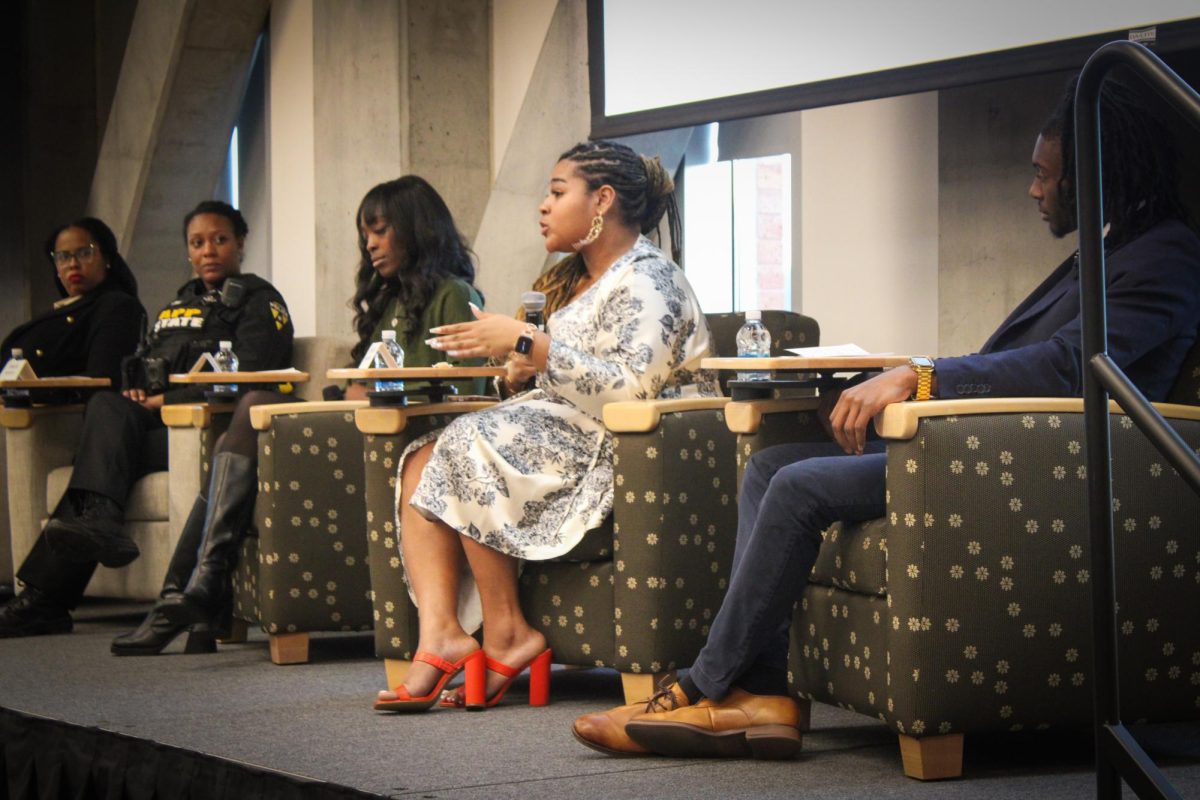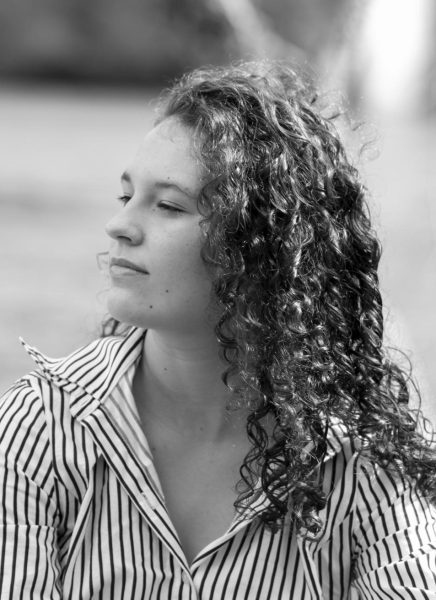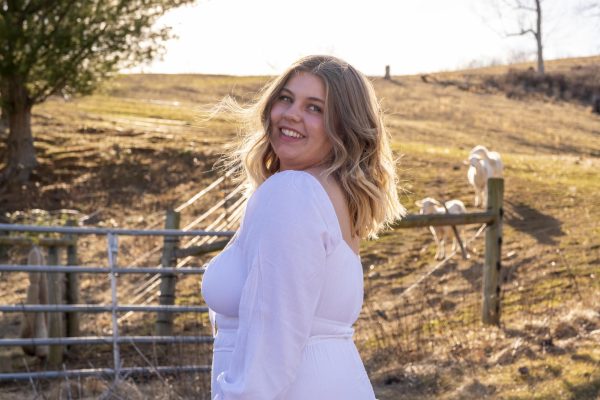While preparing for her interview for a career in financial controls analysis, Natazhia Lovett didn’t plan to discuss her college cheerleading career.
“During my interview, it was two men asking me about cheering,” Lovett said. “Seeing them very engaged in what made me into who I am today was really interesting.”
She said the interview stuck with her long after it was completed, because the men were engaged in who she was, and why she was the person she became.
She told the filled ballroom she viewed interviews as almost a “first date.”
In a continuing series with the Walker College of Business, the Spring edition of Courageous Conversations took place in the Parkway Ballroom on the fourth floor of Plemmons Student Union, from 5:30 to 7 p.m. on Wednesday. In the conversation, alumni spoke about their experiences in and out of the workplace, while also discussing their experiences regarding being Black in the business field.
The panel consisted of four female alumni who represented different fields in business. Mariah Breeze, Kwani Taylor, Natazhia Lovett and Cashae Cook spoke on the panel.
Each panelist was asked questions about their background and experiences by the moderators, beginning with what got them into the fields they are in today.
Lovett said she credits App State for getting her into the career she is in.
Lovett came to App State as an accounting major, and was accepted to Walker College of Business during her second year. She currently works at Wells Fargo as a senior independent testing specialist.
Breeze shared that her career as a senior solutions consultant at Genesys was a surprise to her.
“I never thought I would go into sales,” Breeze said.
Breeze said she has always been drawn to math and business but wanted to have a career abroad.
Echoing her experience, Cook said she never expected to become a police officer.
Cook works with App State Police, as the diversity, inclusion and community engagement officer.
“I had all intentions of being a band teacher,” Cook said. “But outside of that, I had a difficult childhood growing up and there was always help and support from police officers and people in the criminal justice system.”
Taylor shared the same goals as Cook, where she strives to create a more inclusive environment for those in the workplace around her. Taylor works in the Office of Diversity and Inclusion at App State. She said the book “The Other Wes Moore” by Wes Moore sparked her interest in psychology.
“In this book, he reads in the paper one day that a man with the same name, Wes Moore, is in prison for life,” Taylor said. “He finds out they’re also from the same neighborhood, and wonders how two people can have such different experiences.”
Taylor said the book inspired her to strive to create an environment that welcomes everyone to the best of her ability.
The panelists all strive to both promote and be a part of an inclusive workplace and said what they consider to be non-inclusive for a work environment.
Taylor said she asks what an employer’s mission is, as well as asking what kind of candidates the organization is looking for. Breeze agreed with Taylor, adding that she asks about open-door policies.
Breeze said she asks what is offered to employees regarding resources that may be needed. She said a red flag for her can be how employers respond to any sort of employee criticism.
The panelists agreed, saying they also ask about diversity, equity and inclusion programs put in place.
“In 2020, I believe, we started the Diversity, Equity and Inclusion unit with App State Police,” said Cook, who runs recruiting for App State Police. “It was one of the first police departments in the nation to designate an entire unit to those initiatives.”
The panelists were also asked what advice they would give to minorities seeking careers, as well as how others can use their privilege to help.
“It’s OK to not have it all figured out,” Cook said, regarding changing and finding career fields.
Cook said those with privilege can stand up for minorities, even when they are not around.
“Be willing to let those in need talk,” Cook said. “Be a safe space.”
“Doors will close in your face,” she said. “But the biggest difference will be how you overcome it. Always use your voice.”
The panelists concluded their answers by saying to never let boundaries be pushed in the workplace.
““You should not feel uncomfortable,” Taylor said.
In attendance was assistant professor of accounting Robin Romanus. She advised her students to attend the discussion, and said she tries to incorporate as many experiences in her class as possible.
“I feel like our population at App isn’t as diverse as we’d want it to be,” Romanus said. “I’d really just like them to have the experience of listening to other people who have encountered different situations than they have.”
McKenzie Shail, a graduate student of Romanus’, attended the discussion for the first time.
“I went in hoping to gain insight regarding other people’s experiences in the workplace, and ways I can do my part to support people in my future endeavors,” Shail said. “The discussion ended up giving me tips for post-college life, as well as valuable insight into the workplace.”
Shail said she plans to attend future discussions, and said they are “a tremendous opportunity for students of all majors.”
She encourages everyone to attend the discussions, saying she believes the workshop gives everyone ways to learn and work to be better.
Meredith Pipes described organizing the discussion for the series. Pipes said the process involved reaching out to App State alumni, as well as asking them if they were willing to possibly provide mentorship to students in business fields as well.
“The series has been going on since 2017,” Pipes said. “They started off being annual, then became bi-annual.”
She wanted to have panelists discuss their careers after graduating, as well as how their identities have shaped their experiences.
“We wanted a chance to give students of color a chance to connect with mentorship and network,” she said. “We also want students who are not students of color to hear how to be better allies and create more of an understanding.”



